
A superb 2009 concert at Command House, in Chatham, UK from the trio of saxophonist Evan Parker, double bassist John Edwards, and late drummer/percussionist Tony Marsh, a single 36 minute improvisation of cohesive and energetic free jazz where all three pull together as a nearly telepathic unit, plus two extended duo sections between Edwards and Marsh and a Marsh solo.
Out of Stock
Quantity in Basket: None
Log In to use our Wish List
Shipping Weight: 3.00 units
Sample The Album:
Evan Parker-saxophone
John Edwards-double bass
Tony Marsh-drums
Click an artist name above to see in-stock items for that artist.
UPC: 642415162944
Label: FMR
Catalog ID: FMR 623
Squidco Product Code: 31222
Format: CD
Condition: New
Released: 2021
Country: UK
Packaging: Digipack - 3 panel
Recorded at Command House, in Chatham, UK, in October, 2009, by Trevor Taylor.
A superb 2009 concert at Command House, in Chatham, UK from the trio of saxophonist Evan Parker, double bassist John Edwards, and late drummer/percussionist Tony Marsh, a single 36 minute improvisation of cohesive and energetic free jazz where all three pull together as a nearly telepathic unit, plus two extended duo sections between Edwards and Marsh and a Marsh solo.
Artist Biographies
• Show Bio for Evan Parker "Evan Parker was born in Bristol in 1944 and began to play the saxophone at the age of 14. Initially he played alto and was an admirer of Paul Desmond; by 1960 he had switched to tenor and soprano, following the example of John Coltrane, a major influence who, he would later say, determined "my choice of everything". In 1962 he went to Birmingham University to study botany but a trip to New York, where he heard the Cecil Taylor trio (with Jimmy Lyons and Sunny Murray), prompted a change of mind. What he heard was "music of a strength and intensity to mark me for life ... l came back with my academic ambitions in tatters and a desperate dream of a life playing that kind of music - 'free jazz' they called it then." Parker stayed in Birmingham for a time, often playing with pianist Howard Riley. In 1966 he moved to London, became a frequent visitor to the Little Theatre Club, centre of the city's emerging free jazz scene, and was soon invited by drummer John Stevens to join the innovative Spontaneous Music Ensemble which was experimenting with new kinds of group improvisation. Parker's first issued recording was SME's 1968 Karyobin, with a line-up of Parker, Stevens, Derek Bailey, Dave Holland and Kenny Wheeler. Parker remained in SME through various fluctuating line-ups - at one point it comprised a duo of Stevens and himself - but the late 1960s also saw him involved in a number of other fruitful associations. He began a long-standing partnership with guitarist Bailey, with whom he formed the Music Improvisation Company and, in 1970, co-founded Incus Records. (Tony Oxley, in whose sextet Parker was then playing, was a third co-founder; Parker left Incus in the mid-1980s.) Another important connection was with the bassist Peter Kowald who introduced Parker to the German free jazz scene. This led to him playing on Peter Brötzmann's 1968 Machine Gun, Manfred Schoof's 1969 European Echoes and, in 1970, joining pianist Alex von Schlippenbach and percussionist Paul Lovens in the former's trio, of which he is still a member: their recordings include Pakistani Pomade, Three Nails Left, Detto Fra Di Noi, Elf Bagatellen and Physics. Parker pursued other European links, too, playing in the Pierre Favre Quartet (with Kowald and Swiss pianist Irene Schweizer) and in the Dutch Instant Composers Pool of Misha Mengelberg and Han Bennink. The different approaches to free jazz he encountered proved both a challenging and a rewarding experience. He later recalled that the German musicians favoured a "robust, energy-based thing, not to do with delicacy or detailed listening but to do with a kind of spirit-raising, a shamanistic intensity. And l had to find a way of surviving in the heat of that atmosphere ... But after a while those contexts became more interchangeable and more people were involved in the interactions, so all kinds of hybrid musics came out, all kinds of combinations of styles." A vital catalyst for these interactions were the large ensembles in which Parker participated in the 1970s: Schlippenbach's Globe Unity Orchestra, Chris McGregor's Brotherhood of Breath, Barry Guy's London Jazz Composers Orchestra (LJCO) and occasional big bands led by Kenny Wheeler. In the late 70s Parker also worked for a time in Wheeler's small group, recording Around Six and, in 1980, he formed his own trio with Guy and LJCO percussionist Paul Lytton (with whom he had already been working in a duo for nearly a decade). This group, together with the Schlippenbach trio, remains one of Parker's top musical priorities: their recordings include Tracks, Atlanta, Imaginary Values, Breaths and Heartbeats, The Redwood Sessions and At the Vortex. In 1980, Parker directed an Improvisers Symposium in Pisa and, in 1981, he organised a special project at London's Actual Festival. By the end of the 1980s he had played in most European countries and had made various tours to the USA, Canada, Australia, New Zealand and Japan. ln 1990, following the death of Chris McGregor, he was instrumental in organising various tributes to the pianist and his fellow Blue Notes; these included two discs by the Dedication Orchestra, Spirits Rejoice and lxesa. Though he has worked extensively in both large and small ensembles, Parker is perhaps best known for his solo soprano saxophone music, a singular body of work that in recent years has centred around his continuing exploration of techniques such as circular breathing, split tonguing, overblowing, multiphonics and cross-pattern fingering. These are technical devices, yet Parker's use of them is, he says, less analytical than intuitive; he has likened performing his solo work to entering a kind of trance-state. The resulting music is certainly hypnotic, an uninterrupted flow of snaky, densely-textured sound that Parker has described as "the illusion of polyphony". Many listeners have indeed found it hard to credit that one man can create such intricate, complex music in real time. Parker's first solo recordings, made in 1974, were reissued on the Saxophone Solos CD in 1995; more recent examples are Conic Sections and Process and Reality, on the latter of which he does, for the first time, experiment with multi-tracking. Heard alone on stage, few would disagree with writer Steve Lake that "There is, still, nothing else in music - jazz or otherwise - that remotely resembles an Evan Parker solo concert." While free improvisation has been Parker's main area of activity over the last three decades, he has also found time for other musical pursuits: he has played in 'popular' contexts with Annette Peacock, Scott Walker and the Charlie Watts big band; he has performed notated pieces by Gavin Bryars, Michael Nyman and Frederic Rzewski; he has written knowledgeably about various ethnic musics in Resonance magazine. A relatively new field of interest for Parker is improvising with live electronics, a dialogue he first documented on the 1990 Hall of Mirrors CD with Walter Prati. Later experiments with electronics in the context of larger ensembles have included the Synergetics - Phonomanie III project at Ullrichsberg in 1993 and concerts by the new EP2 (Evan Parker Electronic Project) in Berlin, Nancy and at the 1995 Stockholm Electronic Music Festival where Parker's regular trio improvised with real-time electronics processed by Prati, Marco Vecchi and Phillip Wachsmann. "Each of the acoustic instrumentalists has an electronic 'shadow' who tracks him and feeds a modified version of his output back to the real-time flow of the music." The late 80s and 90s brought Parker the chance to play with some of his early heroes. He worked with Cecil Taylor in small and large groups, played with Coltrane percussionist Rashied Ali, recorded with Paul Bley: he also played a solo set as support to Ornette Coleman when Skies of America received its UK premiere in 1988. The same period found Parker renewing his acquaintance with American colleagues such as Anthony Braxton, Steve Lacy and George Lewis, with all of whom he had played in the 1970s (often in the context of London's Company festivals). His 1993 duo concert with Braxton moved John Fordham in The Guardian to raptures over "saxophone improvisation of an intensity, virtuosity, drama and balance to tax the memory for comparison". Parker's 50th birthday in 1994 brought celebratory concerts in several cities, including London, New York and Chicago. The London performance, featuring the Parker and Schlippenbach trios, was issued on a highly-acclaimed two-CD set, while participants at the American concerts included various old friends as well as more recent collaborators in Borah Bergman and Joe Lovano. The NYC radio station WKCR marked the occasion by playing five days of Parker recordings. 1994 also saw the publication of the Evan Parker Discography, compiled by ltalian writer Francesco Martinelli, plus chapters on Parker in books on contemporary musics by John Corbett and Graham Lock. Parker's future plans involve exploring further possibilities in electronics and the development of his solo music. They also depend to a large degree on continuity of the trios, of the large ensembles, of his more occasional yet still long-standing associations with that pool of musicians to whose work he remains attracted. This attraction, he explained to Coda's Laurence Svirchev, is attributable to "the personal quality of an individual voice". The players to whom he is drawn "have a language which is coherent, that is, you know who the participants are. At the same time, their language is flexible enough that they can make sense of playing with each other ... l like people who can do that, who have an intensity of purpose." " ^ Hide Bio for Evan Parker • Show Bio for John Edwards "After taking up the bass, around 1987, John Edwards co-formed The Pointy Birds who went on to win awards for their music for The Cholmondeleys and Featherstonehaughs dance troupes. The group appeared at festivals in Glasgow, Edinburgh, Moers, Leverkusen, Copenhagen. Around 1990, Edwards played his first gigs with London improvisers such as Roger Turner, Lol Coxhill, Maggie Nicols, Phil Minton. Between 1990 and 1995 Edwards was a member of three touring groups simultaneously: B-Shops For The Poor, The Honkies and GOD. During this period he also became an increasingly regular player on the London improvised music scene and performed his first solo gigs; he composed and performed music theatre with the bass and cello duo The Great Explorers, street-busked a lot and appeared at many more festivals in Germany, Estonia, France, Italy, Czech, etc. Since 1995 John Edwards has become a "mainstay" of the London scene, playing with just about everybody, an activity that has seen him clocking up between 150 and 200 gigs a year. He has become regular player with Evan Parker, in many groupings, and with Tony Bevan, Veryan Weston, and Elton Dean, often in collaboration with Mark Sanders on percussion. He has become a more frequent player on the European (and festival) scene, appearing at Taktlos, Ulrichsburg, Nickelsdorf, Budapest, New Zealand and in the USA. He continues to work on solo performances." ^ Hide Bio for John Edwards • Show Bio for Tony Marsh Tony Marsh, real name Anthony Vincent Stewart Marsh, was a British free jazz/improv drummer and percussionist (born 19 August 1939, Lancaster, died of cancer aged 72, 9 April 2012 in London, England). "The percussionist Tony Marsh, who has died of cancer aged 72, was an inspired collaborator, combining intensity with restraint and stroking the drums more than he struck them. He worked with some of the most creative artists in European jazz of the past four decades, from the composer Mike Westbrook to the saxophonists John Tchicai and Evan Parker. Marsh devoted his life to an art form short on cash and kudos, but long on creative satisfaction. In his last months he sought inspiration in the complex scores of the composer Iannis Xenakis; formed a new trio with two of London's most creative jazz 20-somethings; and, in March, played an impromptu London performance with the Chicago saxophone master Roscoe Mitchell that astonished those who witnessed it. Marsh was born in Lancaster, the eldest of three brothers. The family moved to London after the second world war in search of better medical care for his tuberculosis, and he spent a long period of recuperation in St Thomas' hospital. That period of illness seriously hampered his formal education, but he became a good enough teenage footballer to enter trials for professional clubs. He took up the drums as a military bandsman during national service in the 50s and would play them at Butlins' holiday camps and on cruise ships. In the 60s, he made a living in the West End of London as a jobbing drummer - also learning from records by the great American jazz bands of Clifford Brown (with the bebop drums pioneer Max Roach), Miles Davis and John Coltrane. In the early 70s, Marsh joined the saxophonist Don Weller, the bass guitarist Bruce Colcutt and the guitarist Jimmy Roche in Major Surgery. The band only released one album, First Cut (1977), but it acquired lasting cult status. He also began productive relationships with the saxophonist Chris Biscoe, the Barbadian trumpeter Harry Beckett and the saxophonist Mike Osborne (in the last period of that cutting-edge artist's playing life, before mental illness incapacitated him in 1982). Marsh then discovered Westbrook's brass band and big-band music, improv, cabaret and more. Marsh's relaxed dynamism powered an unusual Westbrook big band on an Ellington tribute at Amiens, France, in 1984. It became the landmark album On Duke's Birthday. Four years later, Marsh joined Biscoe's quartet, Full Monte. Through his European tours with Westbrook, Marsh forged a link with the French jazz scene, regularly commuting between Paris and London until the early 2000s. In 1985, he joined Biscoe and a French brass section to record the bassist Didier Levallet's album Quiet Days, followed by a series of sessions led by Beckett - including one that Levallet considered among his best recordings, Images of Clarity (1992). He also played with the adventurous UK pianist Howard Riley, reeds player Paul Dunmall, and with the saxophonist Simon Picard and the bass virtuoso Paul Rogers on their recording News from the North (1991) for the Swiss experimental label Intakt. Marsh then committed himself increasingly to life in London. He hugely enjoyed his monthly involvement in the experimental London Improvisers Orchestra (involving the composer/pianist Steve Beresford, Parker and a loose repertory company of others). He was also a permanent member of one of the most thrilling European free-improv trios of recent times, with Parker and the double bassist John Edwards. Marsh was also the driving force behind a genre-crossing quartet with the flautist Neil Metcalfe, the violinist Alison Blunt and the cellist Hannah Marshall. Since 2011, he had begun a productive relationship with two hotly tipped newcomers, the reeds player Shabaka Hutchings and the bassist Guillaume Viltard. They played freely without prolixity, combined fine detail with spontaneity, and eschewed amplification. "Listen closely, take a chance, keep going even if money's tight, and you'll find the real reward - that's why Tony was hip in the most meaningful sense," Parker says. "And he didn't need to play loud, or be loud, to get that intensity. It's like splitting diamonds or something. If you know exactly the right place to make the impact, you don't need to hit anything hard." [...]"-John Fordham, The Guardian ^ Hide Bio for Tony Marsh
1/21/2025
Have a better biography or biography source? Please Contact Us so that we can update this biography.
1/21/2025
Have a better biography or biography source? Please Contact Us so that we can update this biography.
1/21/2025
Have a better biography or biography source? Please Contact Us so that we can update this biography.
Track Listing:
1. Medway Blues 36:11
Improvised Music
Jazz
Free Improvisation
London & UK Improv & Related Scenes
Parker, Evan
Trio Recordings
Staff Picks & Recommended Items
Search for other titles on the label:
FMR.


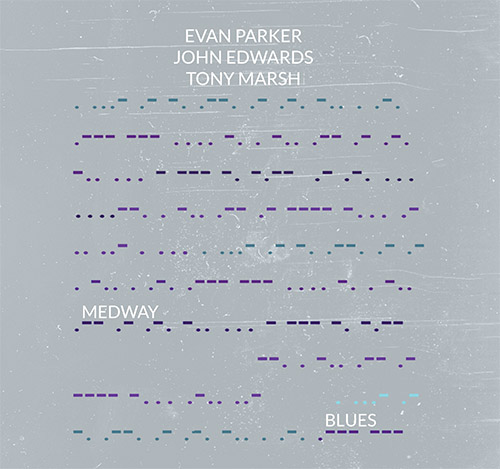



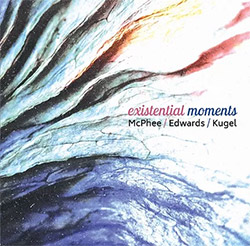
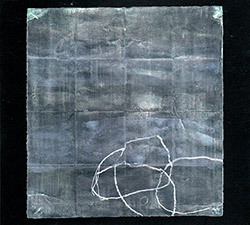

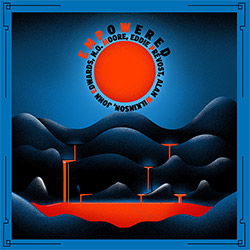

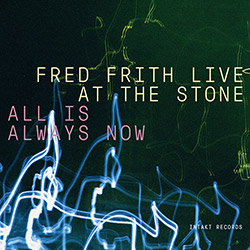
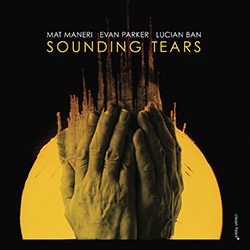

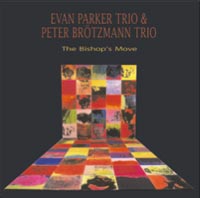
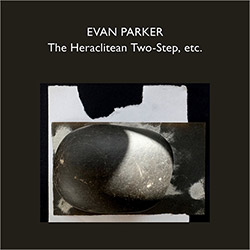

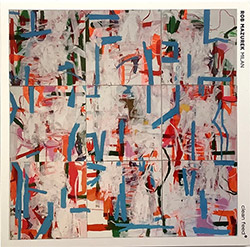
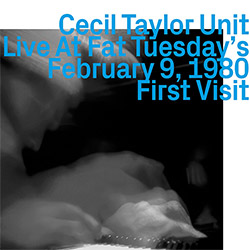
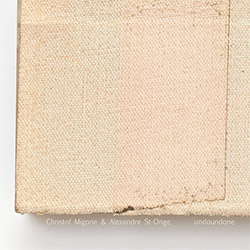

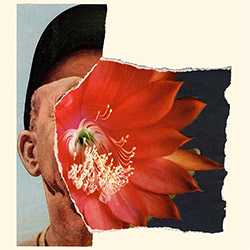


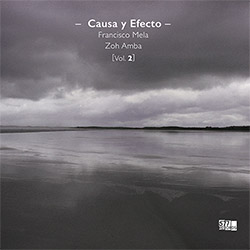

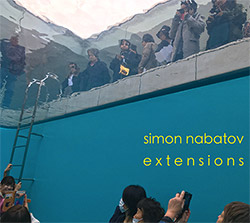
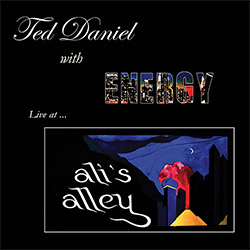
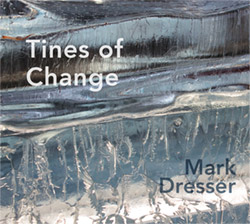


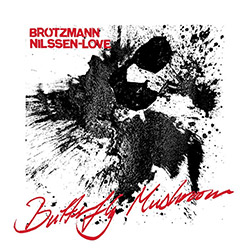
![Brotzmann, Peter / Paal Nilssen-Love: Butterfly Mushroom [VINYL]](https://www.teuthida.com/productImages/misc4/35541.jpg)
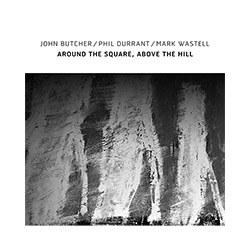
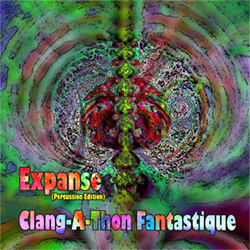
![Allen, Clifford: Singularity Codex: Matthew Shipp On Rogueart [BOOK]](https://www.teuthida.com/productImages/misc4/33454.jpg)


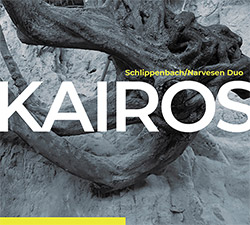

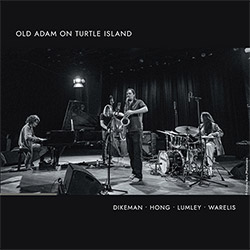
![Sun Ra: Lanquidity (DELUXE EDITION) [VINYL]](https://www.teuthida.com/productImages/misc4/35234.jpg)
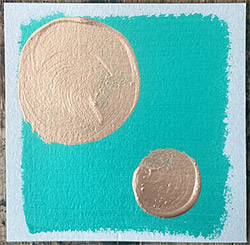
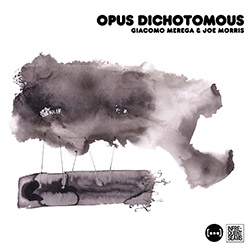
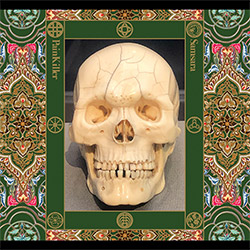
![Sun & Rain (Morgan / Laplante / Smiley / Nazary): Waterfall [VINYL]](https://www.teuthida.com/productImages/misc4/35604.jpg)
![Centazzo, Andrea: Ictus@45 - Out Off Nights [4 CD BOX SET]](https://www.teuthida.com/productImages/misc4/35611.jpg)
![Kaucic, Zlatko (Kaucic / Amado / Dorner / Grom / Guy / Fernandez / Snekkestad): INKLINGS [4 CD BOX SET]](https://www.teuthida.com/productImages/misc4/35614.jpg)
![Fernandez, Agusti feat. Barry Guy, Don Malfon, John Butcher, Jordina Milla, Liudas Mockunas, Lucia Martinez, Torben Snekkestad, Zlatko Kaucic: Agusti Fernandez @70 - Aesthetic Of Prisms. [7 CDs]](https://www.teuthida.com/productImages/misc4/35617.jpg)
![Sarian, Michael / Matthew Putman / Ledian Mola / Federico Ughi: The Sea, The Space, and Egypt, Vol. 1 [VINYL]](https://www.teuthida.com/productImages/misc4/35463.jpg)
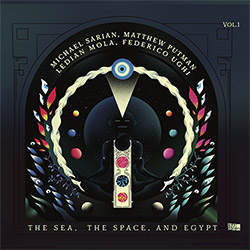
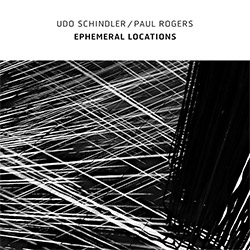
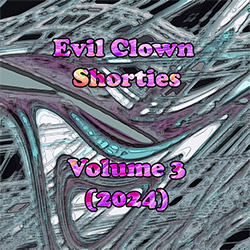



![Berne, Tim (w/ Tom Rainey / Gregg Belisle-Chi): Yikes Too [2 CDs]](https://www.teuthida.com/productImages/misc4/35601.jpg)
![Berne, Tim (w/ Rainey / Belisle-Chi): Yikes [VINYL]](https://www.teuthida.com/productImages/misc4/35602.jpg)

![Butcher / Davies / Sanders / Thomas: Unlockings [VINYL]](https://www.teuthida.com/productImages/misc4/35002.jpg)
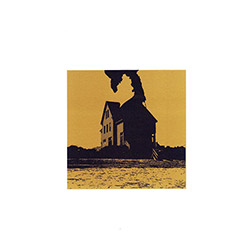
![Brulez les meubles (+ Ingrid Laubrock / Marianne Trudel / Jonathan Huard): FOLIO #5 [VINYL]](https://www.teuthida.com/productImages/misc4/35629.jpg)
![Butcher / Davies / Sanders / Thomas: Lower Marsh [VINYL]](https://www.teuthida.com/productImages/misc4/35003.jpg)
![Beins, Burkhard (w/ Dorner / Elieh / Ermke / Neumann / Renkel / Tuerlinckx / Zapparoli): Eight Duos [3 LPs]](https://www.teuthida.com/productImages/misc4/35473.jpg)

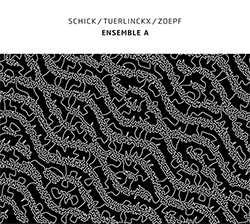
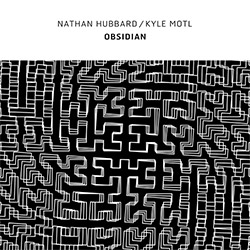
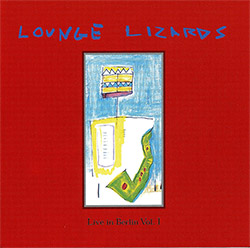
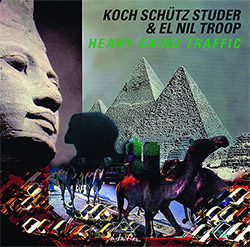

![Taylor, Cecil: The Classic Albums - 8 Remastered LPs [4 CD BOX SET]](https://www.teuthida.com/productImages/misc4/35519.jpg)
![Bang / Duch / Honore / Toop / Wastell: Wunderkammer [VINYL]](https://www.teuthida.com/productImages/misc4/35536.jpg)
![Fagaschinski, Kai / Yan Jun : Graveyard Processions [VINYL w/ DOWNLOAD]](https://www.teuthida.com/productImages/misc4/35474.jpg)
![Brant, Cody / Carl Kruger: Smoke Detail [CASSETTE w/ DOWNLOAD]](https://www.teuthida.com/productImages/misc4/35551.jpg)
![Weirs and Magic Tuber Stringband : The Crozet Tunnel [CASSETTE + DOWNLOAD]](https://www.teuthida.com/productImages/misc4/35570.jpg)
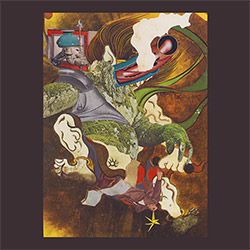
![Abcess Grenk: Erguss Von Licht [CASSETTE w/ DOWNLOAD]](https://www.teuthida.com/productImages/misc4/35560.jpg)

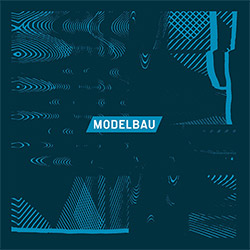
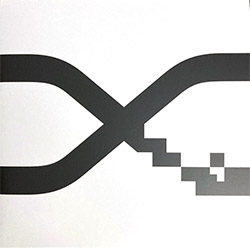
![Alva Noto: Xerrox Vol. 5 [VINYL 2 LPs]](https://www.teuthida.com/productImages/misc4/35359.jpg)
![Weston, Matt: Communism Has Appeared On The Scene [VINYL 2 LPs]](https://www.teuthida.com/productImages/misc4/35546.jpg)

![Jeck, Philip: rpm [2 CDs]](https://www.teuthida.com/productImages/misc4/35455.jpg)






![DNS: Taking Big Bites Of The Khandas Three Cafes Deep [2 CDs]](https://www.teuthida.com/productImages/misc4/35334.jpg)




![Cleaver, Gerald: The Process [VINYL]](https://www.teuthida.com/productImages/misc4/34966.jpg)




![Lonsdale, Eden: Dawnings [2 CDs]](https://www.teuthida.com/productImages/misc4/35480.jpg)







![Sanna, Claudio: Compositori Sardi Contemporanei II [2 CDs]](https://www.teuthida.com/productImages/misc4/35317.jpg)







![Zurria, Manuel: Fame di Vento [3 CDs]](https://www.teuthida.com/productImages/misc4/35167.jpg)

![Granberg, Magnus / Nattens Inbrott / Skogen: Holde Traume, Kehret Wieder! [2 CDs]](https://www.teuthida.com/productImages/misc4/35038.jpg)
![Frey, Jurg: Outermost Melodie [2 CDs]](https://www.teuthida.com/productImages/misc4/35039.jpg)

![Pavone, Jessica: Reverse Bloom [VINYL]](https://www.teuthida.com/productImages/misc4/34895.jpg)




![Modney (Modney / Wooley / Gentile / Roberts / Pluta / Symthe / ...): Ascending Primes [2 CDs]](https://www.teuthida.com/productImages/misc4/34852.jpg)






![Elephant9 : Mythical River [VINYL]](https://www.teuthida.com/productImages/misc4/34624.jpg)



![Elephant9 with Terje Rypdal: Catching Fire [VINYL 2 LPs]](https://www.teuthida.com/productImages/misc4/35355.jpg)
![Deerlady (Obomsawin, Mali / Magdalena Abrego): Greatest Hits [VINYL]](https://www.teuthida.com/productImages/misc4/34876.jpg)




![Haino, Keiji: Black Blues [2 CDs]](https://www.teuthida.com/productImages/misc4/35109.jpg)



![Surplus 1980: Illusion of Consistency [CD]](https://www.teuthida.com/productImages/misc4/35069.jpg)
![Staiano, Moe: Away Towards the Light [VINYL + DOWNLOAD]](https://www.teuthida.com/productImages/misc4/35037.jpg)



![Caveira (Gomes / Sousa / Abras / Ferrandini): Ficar Vivo [VINYL]](https://www.teuthida.com/productImages/misc4/34643.jpg)
![Gregg, J. J. / David Van Auken: Lunar Prairie [CD w/ DOWNLOAD]](https://www.teuthida.com/productImages/misc4/34611.jpg)

![Coultrain: Mundus [VINYL]](https://www.teuthida.com/productImages/misc4/32439.jpg)
![Mattin: Songbook #6 [VINYL]](https://www.teuthida.com/productImages/misc4/27317.jpg)
![Punkappella: Wake Up [7-inch VINYL]](https://www.teuthida.com/productImages/misc4/17519.jpg)
![Residents, The: WARNING: UNiNC.: Live And Experimental Recordings 1971-1972 [VINYL 2 LPs]](https://www.teuthida.com/productImages/misc4/31521.jpg)
![Coley, Byron: Dating Tips for Touring Bands [VINYL]](https://www.teuthida.com/productImages/misc4/17906.jpg)

![Lost Kisses: My Life is Sad & Funny [DVD]](https://www.teuthida.com/productImages/misc4/lostKissesDVD.jpg)